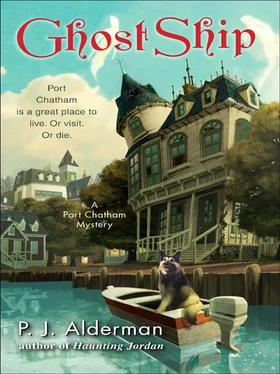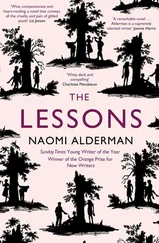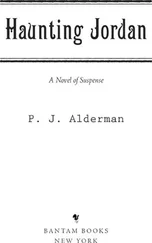“It’s not as if Jordan likes to go without her comforts,” Tom interrupted.
“Hey,” Jordan said. She was insulted.
“We’re not saying there’s anything wrong with wanting to be comfortable,” Jase hastily assured her. “I upgraded both the kitchen and bathrooms in my house when I restored it. I wasn’t interested in living without a dishwasher, among other things.”
“But we need her to talk to the ghosts, so that we have all the information,” Amanda insisted. “This is an exciting opportunity for all of us, having the original inhabitants of a haunted house available for interviews during the restoration.”
Jordan tried to wrap her mind around that comment and failed. She settled for saying, “I can’t bring the ghosts into the process until I have a vision of what I intend to do.” Standing, she removed plates and stacked them in the sink. “Tom, did you bring your papers with you from the library?”
“Yep.” He pointed.
The sheaf of papers sitting in the middle of the table looked thick and intimidating. Jordan blew out a breath. “So. Who wants more espresso?”
* * *
THREE hours later, Jordan drove out to the Port Chatham Historical Society research building, weaving around horse-drawn carriages and old-fashioned bicycles. If any cops were on traffic duty, they probably thought she was careening wildly down the road under the influence. But it wasn’t as if she had any choice in the matter—she couldn’t drive through people, even if they weren’t of this world.
Halfway into Tom’s recitation of the many repairs needed to Longren House, she’d started hyperventilating over the projected costs. Apparently the diagonal crack running the length of the bay window in the parlor was a “compression shear crack of moderate size,” a not so bad problem yet , while the cracks in the plaster behind the bookcases in the library were possibly the result of ground settlement, a worse problem, and troubling . Tom had then talked about finding no “pyramid” failures in the exposed portions of the foundation in the basement, maybe a good sign, but quickly segued into a discourse on water being the “adversary” they had to decisively rout from the entire structure.
About the time he anthropomorphized a structural defect in the staircase—describing it as relentless in its attempts to undermine the second and third floors of the house—she’d called a halt. After shooing everyone out, she’d straightened up the rest of the mess in the library, agreed to let Malachi take her for a walk, then shoved him into the Prius for the trip out to the Historical Society research facility.
Her favorite route from home to the south side of town where the facility was located was admittedly circuitous. Instead of heading straight south through her neighborhood along the main drag, she turned east, driving down the hill to the waterfront. This route gave her sweeping views of Admiralty Inlet and Port Chatham Bay, where she could observe the ferries and other marine traffic. The harbor was filled with sailing ships of all kinds—even an old-fashioned steamer or two with their huge smokestacks and paddle wheels.
In the past, she’d taken for granted that the beautiful old ships she always saw anchored throughout the bay were actually there . Now, of course, she had to wonder, which really put a dent in the pleasure of simply observing. Did ghost ships—if those were what she was actually seeing—simply hang out in the harbor? Was the ghost of every wrecked ship from over the centuries still lurking about? If she walked into a historic bar down on the waterfront, would she find a higher ratio of ghosts to patrons than in All That Jazz, because of the number of spectral sailors living along the waterfront?
She braked at a red light downtown, scowling at the two ladies attired in ankle-length day dresses with parasols, jaywalking half a block up. Dammit, this simply wouldn’t do—she couldn’t spend all her time speculating about the ramifications of what she saw versus what everyone else saw. And more to the point, she refused to lose the simple pleasure of enjoying the scenery on her outings. There had to be some way to control this crap. She had enough challenges in her real life.
The light switched green and she turned onto the main drag heading out of downtown. Challenges, for instance, such as money, which was beginning to loom large, particularly after talking to Tom that morning. She supposed she’d have to consider starting up a new therapy practice earlier than she’d originally intended. Though the insurance settlement she’d received from her husband’s murder would tide her over for now, the repairs would make a serious dent in those funds.
Her plan had been to take at least a year’s sabbatical from therapy work, and frankly, she wasn’t even convinced in light of recent events that she should return to a practice at all. Given that she hadn’t had a clue that her charming sociopath of a husband had been bedding his patients for years—she wasn’t exactly confident of her skills in her chosen profession.
Granted, when she’d mentioned her concerns to her good friend Carol, a fellow professional, Carol had pooh-poohed them. She’d pointed out that no one does a good job of sorting through events affecting her own life, and that Jordan’s recent failures had no correlation to her effectiveness as a therapist. But Jordan wasn’t convinced. And because she’d lost her confidence, she knew she’d second-guess every decision she made in a therapy session, which wasn’t fair to her patients.
In addition, her discipline had been Rational Therapy. No one , at this point, would describe her life as anything remotely resembling rational . She turned into the Historical Society’s parking lot. No, she really didn’t believe she should be taking on patients—at least, not until she could come to grips with her own problems. If anything, her original plan for a one-year sabbatical should be extended.
Maybe Jase would let her waitress for tips. “That should give me just enough money to pay for your dog food,” she said out loud to Malachi.
“Rooooo … ooow.” He yawned, then inched forward to lick the side of her face.
Spying a construction worker in overalls coming out of the building, she cracked the windows, then hopped out of the car, poking her head back in just long enough to tell Malachi, “I promise I’ll only be a half hour or so.”
Malachi heaved a sigh, his expression skeptical yet resigned, and lay down.
She jogged across the lot, Seavey’s papers tucked under one arm, catching the man just as he was locking up. She stuck out a hand, saying cheerfully, “Hi! I’m Jordan.”
He shook. “Travis, ma’am.” He looked to be in his thirties, and his overalls were covered with smears of something white and gunky. He was frowning at her.
“Any chance you’d let me inside the building for a bit?” she asked. “I need to check the newspaper archives for information on a murder that occurred in the nineteenth century.”
His face cleared. “Hey, you’re that ghost lady, right? What? Are you investigating again or something?”
“Or something,” she replied vaguely. “I won’t be long, I promise.”
He hesitated, scratching his head, transferring some of the white goo in the process. “I’m not really supposed to let anyone else in.”
She pasted a reassuring expression on her face, hoping she looked trustworthy.
He gave a small shrug. “I guess it doesn’t matter all that much. I figure you’d just get one of your ghosts to go through the wall and unlock the door from the inside, right?”
Читать дальше












